Each time I do these retrospectives I go all the way back and revisit many films that were released in the given year. I found that there was a common theme in nearly each of these visions, and so many films were about the cycles of life–the recurring patterns of nature and how we all go through these channels as time marches on. From Terrence Malick capturing the creation and cycles of life in his self autobiographical upbringing in The Tree of Life to Alexander Payne’s grief-stricken and sharply written character-driven The Descendants to Kenneth Lonergan grossly underrated Margaret showcasing how even teenagers are faced with life’s cruel realities of suffering and encountering death. It was a year where many films explored the existential, as Malick showed the creation of Earth, Lars von Trier destroyed it. Meanwhile, many other auteurs like Asghar Farhadi, Abbas Kiarostami, Steve McQueen, and Apichatpong Weekstfuls also made bold films about our meaning and existence in the modern world, and how our surroundings can shape who we are both psychological and spiritually. It was a year that asked difficult questions, that explored uncomfortable truths, and the result was extraordinarily liberating.
Six years after his previous masterpiece, The New World”, director Terrence Malick returned to his lyrical and visual poetic trademarks for a deeply personal and transcendent film that beautifully examines the true nature of life and existence. Along with Gaspar Noe’s “Enter the Void”, Malick’s “The Tree of Life” is one of the most formally daring pieces of cinema to emerge from this century. By using astonishing edits and breathtaking imagery to create a tapestry of reflection and memory, Malick’s style has taken audiences into a brand new world and raised the bar on what cinema is capable of.
2. Shame (d. Steve McQueen)
Often known as the film that acknowledged the raw realities of sex addiction, McQueen’s vision here is more than just a study of sex addiction: it is a study of trauma, and how one copes with trauma in a society where everything is greatly sexualized. McQueen’s sophomore effort is a spellbinding and shattering study in isolation that raises many questions as to why its main protagonist, Brandon (Michael Fassbender) continues to torment his body and mind with sexual angst. With career-defining performances from everyone involved, Fassbender has never been as raw and wrenching, and Carey Mulligan is so authentic with her torment. Steve McQueen still has not topped this film—it remains his defining movie.
3. The Descendants (d. Alexander Payne)
Released more than 7 years after his 2004 masterpiece Sideways, Alexander Payne proved he was one of most humane directors working today – it being his particularly rich character depth of deeply flawed characters. The Descendants is about a father, Matt (George Clooney in his best performance to date), trying to reconnect with his daughters as his wife lies in a tragic coma from a boating accident. Payne brings out harsh truths and realities of the human condition, yet you always walk away with more affirmation and hope. Hopefully Payne can strike again in the 20s.
4. Melancholia (d. Lars von Trier)
The depression of Danish auteur Lars von Trier has led to some of the most emotionally bleak material yet in his oeuvre, in this case the destruction of the planet Earth from another planet called Melancholia. Yet by using the planet as a brilliant metaphor for what defines depression, von Trier expresses his pain, sometimes even battling and resisting depression until eventually just accepting it as a cycle of life. But the conflicting tones and complexities suggest relief can be found in depression; while inevitably destructive, von Trier finds its core beauty as two sisters bond together and accept Justine’s despair as the planet collides into Earth in one of the most ravishing final images ever captured on celluloid.
5. Uncle Boonmee Who Can Recall His Past Lives (d. Apichatpong Weerasethakul)
By far the weirdest film title and the oddest director name of any film released this century (at least to Westerners like myself), yet there is something woozy and liberating in its spiritual execution and tone. An enthralling film about the interconnections between mankind and nature, Weerasethakul’s deep abstractions are a cautionary tale about how technological emergence from the modern world will eventually destroy the spiritual world. Apichatpong guides us on a metaphysical journey that brims with a poetic and sensory feeling of the void. Instead of rehashing endless exposition and rationalizing why spirits exist, Apichatpong allows the viewer to feel and experience his unforgettable imagery of the subconscious.
6. A Separation (d. Asgar Farhadi)
A Separation is a greatly scripted and crafted film about the modern laws of authoritarian Islamic law in Iran. The film isn’t anti-Islam at all–it’s anti-oppression in how it explores just how draconian the courts and laws can be in Ashgar Farhadi’s native homeland. Revisiting the film 10 years after its release is still heartbreaking, as Iran still continues to be caught in limbo with its warfare and authoritarian state. While very even-handed and emotionally raw with its effective drama, Farhadi opens an empathetic worldview that is a fight for people suffering under dogmatic rule.
7. Certified Copy (d. Abbas Kiarostami)
Labeled as the late Abbas Kiarostami’s most “accessible and mainstream” film to date, yet it still remains a very enigmatic and deeply abstract film. Sophisticated in its touch and every bit as perplexing–yet always fascinating–Certified Copy was Kiarostami at his most playful. Juliette Binoche delivers a great performance as a woman who attends an art lecture by an art historian in Italy (William Shimell). He gives an informative speech on the difference between original art and their copies. He convinces people that there might not even be any differences at all. The woman ends up wanting to talk to the historian, and soon after the two encounter each other, and their relationship ends up shifting and altering as the film progresses. Certified Copy ends up becoming an intriguing film that asks intriguing questions about deception, honesty, and what truly defines the value of art.
8. Le Quattro Volte (d. Michelangelo Frammartino)
The Italian title Le Quattro Volte, which means Four Times, is a solemn meditation on reincarnation and the passage of souls living in and moving on from the natural world. The film explores an elderly goat herd shepherd (Guisppe Fuda) who is aging and severely ill; he eventually passes away, and his goats surround him in a ritualistic manner and the film captures his soul living on through animal to animal. The film is very minimal in dialogue, but Italian director Michelangelo Frammartino offers some of the most breathtakingly filmed sequences of the decade. Viewing this strange and mysterious wonder of a film, we endure an astonishing spiritual odyssey that is truly one of the most memorable and unique experiences of the decade.
9. Margaret (d. Kenneth Lonnergan)
Sadly, a film that never really found the large audience it deserves, even after Kenneth Lonnergan once again reached huge Oscar nominations for Manchester by the Sea, Margaret still is embraced by a small band of film reviewers who continue to push the film today. A film like Margaret is exactly why I re-opened up a website Defacto, and why I do these retrospectives. A towering and dramatic masterwork by brilliant filmmaker Kenneth Lonnergan (Manchester by the Sea, You Can Count On Me). One of the decades most underrated films. Ambitious in scope, contemplative in theme, this is one riveting drama that is dramatically rich and deeply resonant. The saga about a Manhattan teenager who suffers trauma after witnessing a fatal bus accident. Part coming-of-age story, part character study, and always stirring–Lonergan’s sophomore film echoes Gus Van Sants 2008 masterpiece Paranoid Park that examines the brutal realities of teenagers entering the adult realm. This film possesses great complexities and rich character depths. How Anna Paquin wasn’t nominated for this film is baffling to the core.
10. Tinker, Tailor, Soldier, Spy (d Tomas Alfredson)
The skillful Swedish auteur Tomas Alfredson (Let the Right One) followed his acclaim of the 2008 horror masterpiece Let the Right One In with Tinker, Tailor, Soldier, Spy which is one of modern cinema’s most engrossing espionage spy thrillers adapted from John le Carré’s 1974 novel, the film chronicles the activities of the British intelligence group who has a secret mole in their agency who’s disclosing high classified intel to the Soviet Union to a secret source called “Operation Witchcraft.” With an elegant style, Alfredson constructs the film with great detail with many conflict tones and moral ambiguity. The yarn is tangled in its plotting, but everything unravels with intricate brilliance. The entire ensemble of first-rate British actors are also outstanding, particularly Gary Oldman who earned a Best Actor nomination for his outstanding role as George Smiley, the leader of the intelligence ring trying to track down the mole and the intelligence that was given to the Soviets. As layered as it is captivating, the film leaves you wondering just how far one would go to destroy each other where morals, ethics, and ideology can compromise loyalty, trust, and oath to nation.
Runners-Up (In Alphabetical Order)
Bellflower (d. Evan Glodell)
In Evan Glodell’s debut feature, erupted with buzz at the 2011 Sundance Film Festival with its low-budget and grungy/DIY style that is quite aesthetically pleasing and vividly realized that makes some strong commentary on toxic masculinity, inner turmoil, and the agony of love wouldn’t fly with some of its problematic depictions of women. Nevertheless, Bellflower still unfolds with sheer intensity and a singular style that still feels revelatory today. Agonizing and hazardous, Bellflower accomplished so much with its micro-budget. I hope Glodell’s next one is every bit as memorable.
Drive (d. Nicholas Winding Refn)
With many great influences ranging from spaghettis westerns to samurai films, all the way to Jean-Pierre Melville’s Le Samourai, Walter Hill’s The Driver, and certainly Michael Mann’s Thief and William Friedkin’s To Live And Die in L.A., Refn’s follow-up to Bronson certainly holds a lot of familiarity of many other action films of it’s latter. Yet, Refn’s vision still feels uniquely fresh and ironic with just how sensory and woozy the experience into it’s existential abyss into purgatory. Refn’s vision is bold, striking an effective mix of atmosphere and sudden shocks of violence. A film that’s really about longingness and sacrifice, Refn’s Drive is a hypnotic and sensory work of some brilliant pulp fiction.
Martha Marcy May Marlene (d. Sean Durkin)
In a stunning directorial feature film debut, Sean Durkin’s (The Nest) Martha Marcy May Marlene is an expanded yarn of his short film Mary Last Seen, and the result is a discomforting and brooding meditation on coercion and trauma. A film that bounces between flashbacks and the present, the film unfolds with brooding atmosphere and intricate psychological detail. With deliberate pacing and a brilliant use of slow push-ins, meticulous compositions, and a combination of both wide lenses and long lenses, Durkin’s film is a technical marvel that heightens the films tension and eerie texture in providing a world of traumatic dissociation.
Moneyball (d. Bennett Miller)
An extraordinarily unique sports movie, that doesn’t really feature that much sports in it. Bennett Miller’s (Foxcatcher, Capote) fourth feature examines how the harsh cruelties of how the teams with the biggest payroll like the New York Yankee’s often spend the most money on wins to get playoff wins and World Championship rings. Then you have a club like The Oakland A’s–who has a payroll the faction of New York. Moneyball, which still holds up extremely well today examines these economic inequalities and how one must use unorthodox strategies and other methods in thinking outside the box to gain a winning strategy when you have far less resources. The result is a deeply compelling and poignant underdog sports that avoids all typical sports movie tropes of cloying sentimentality and big win tropes, but instead it’s a sports movie that focuses on the smaller and more personal triumphs that speak to the human experience.
Of Gods and Men (d. Xavier Beavois)
An extraordinary and highly powerful film about the testament of faith, about a group of Christian monks who band together and refuse to relocate as a civil war looms in Algeria from fundamentalist terrorists. Co-written and directed by Xavier Beavois, the film is a deeply poetic and riveting one, one that unfolds with tragedy and solemn grace that’s also very unsettling. It’s a film that asks tough questions about faith, pride and principles. While at times quiet and meditative, there is still something very forceful with its dignity while generating a very thoughtful film in its conclusions, while still being gripping and a strongly moral film.
Poetry (d. Lee Chang-dong)
Layered, emotionally charged and deeply ambiguous, Poetry is easily one of Lee Chang-dong’s greatest accomplishments. By contrast, the plot of the film is very similar to Bong-Joon Ho’s 2010 masterwork Mother (2010), which is also about a widowed elderly woman who’s looking after her grandson, in which their lives alter once the body of a young girl is discovered in a river. While the young girl in Poetry was drowned, possibly due to a suicide from trauma that was inflicted by her by Mija’s (Yoon Jeong-hee) young grandson, Mija she must find money in a hush money settlement to appease the dead girls mother as a murky police investigation goes on. With her memory slipping, she barely scrapes by as she cares for the needs of an elderly man who recently suffered from a stroke. Mija must go to extreme heights in keeping her memory intact after being diagnosed with Alzheimer’s, while at the same time discovering a new love for poetry. Chong-dong’s somber and delicate screenplay and elliptical direction are pristine, while Jeang-hee delivers a pitch-perfect melancholic performance into a memorable experience.
Take Shelter (d. Jeff Nichols)
Buoyed by pair of wrenching performances by Michael Shannon and Jessica Chastain, Jeff Nichols sophomore film is a uniquely conveyed psychological thriller that is flooded with rich subtext and allegories that still resonate 10 years later on economic uncertain, climate change, and how other forms of psychological stress can torment the individual, undermine a family, and destroy livelihoods. Drawing on great influences by Ingmar Bergman, Andre Tarkovsky, and even Alfred Hitchcock—Nichol’s vision is highly sophisticated as well as a humane one. Nichol’s taking the idea that one’s perception can alter their reality and distort their mental health speaks volumes on the current state of America’s mental health issues today. Jeff Nichol’s most artful and cerebral film to date is also a very personal, empathetic, yet darkly engrossing one that goes into uncharted waters of the human psyche.
Honorable Mention (In Alphabetical Order)
Another Earth (d. Mike Cahill)
Defacto Film Awards 2011 Nominations and winners
Best Film
The Descendants
Melancholia
Shame
✓ The Tree of Life
Uncle Boonmee Who Can Recall His Past Lives
Best Director
✓ Terrence Malick, The Tree of Life
Steve McQueen, Shame
Alexander Payne, The Descendants
Lars von Trier, Melancholia
Apichatpong Weerasethakul, Uncle Boonmee Who Can Recall His Past Lives
Best Actress
Juliette Binoche, Certified Copy
Kirsten Dunst, Melancholia
✓ Charlotte Gainsbourg, Melancholia
Yoon Jeong-hee, Poetry
Anna Paquin, Margaret
Best Actor
George Clooney, The Descendants
Jean Dujardin,The Artist
✓ Michael Fassbender, Shame
Gary Oldman, The Descendants
Brad Pitt, Moneyball
Best Supporting Actress
Bérénice Bejo, The Artist
Jessica Chastain, Take Shelter
Janet McTeer, Albert Nobbs
✓ Carey Mulligan, Shame
Shailene Woodley, The Descendants
Best Supporting Actor
Albert Brooks, Drive
John Hawkes, Martha Marcy May Marlene
✓ Viggo Mortenson, A Dangerous Method
Nick Nolte, Warrior
Christopher Plummer, Beginners
Best Original Screenplay
Certified Copy–Abbas Kiarostami
Margaret–Kenneth Lonnergan
Melancholia–Lars von Trier
✓ A Separation–Ashgar Farhadi
Shame–Steve McQueen
Best Adapted Screenplay
✓ The Descendants – Alexander Payne, Nat Faxon, and Jim Rash based on the novel by Kaui Hart Hemmings
Hugo – John Logan based on the book entitled The Invention of Hugo Cabret by Brian Selznick
The Ides of March – George Clooney, Grant Heslov, and Beau Willimon based on the play Farragut North by Beau Willimon
Moneyball – Steven Zaillian and Aaron Sorkin; Story by Stan Chervin based on the book by Michael Lewis
Tinker Tailor Soldier Spy – Bridget O’Connor (posthumous nomination) and Peter Straughan based on the novel by John le Carré
Best Documentary
The Arbor – Clio Bernard
The Interrupters – Steve James
✓ Into the Abyss–Werner Herzog
Pina – Wim Wenders and Gian-Piero Ringel
Tabloid-Errol Morris
Best Cinematography
Drive–Newton Thomas Sigel
Melancholia –Manuel Alberto Claro
Shame–Sean Bobbitt
✓ The Tree of Life – Emmanuel Lubezki
Uncle Boonmee Who Can Recall His Past Lives – Sayombhu Mukdeeprom, Yukontorn Mingmongkon, and Charin Pengpanich
Best Editing
The Descendants–Kevin Tent
Hugo – Thelma Schoonmaker
Melancholia – Molly Malene Stensgaard
Shame– Joe Walker
✓ The Tree of Life – Hank Corwin, Jay Rabinowitz, Daniel Rezende, Billy Weber, and Mark Yoshikawa
Best International Film
Certified Copy (France/Italy)
Le Quattro Volte (Italy/Germany)
Poetry (South Korea)
A Separation (Iran)
✓ Uncle Boonmee Who Can Recall His Past Lives (Thailand)
Best Original Score
The Artist – Ludovic Bourcedouble-dagger
✓ Drive – Cliff Martinez
Hugo – Howard Shore
Take Shelter – David Wingo
Tinker Tailor Soldier Spy – Alberto Iglesias






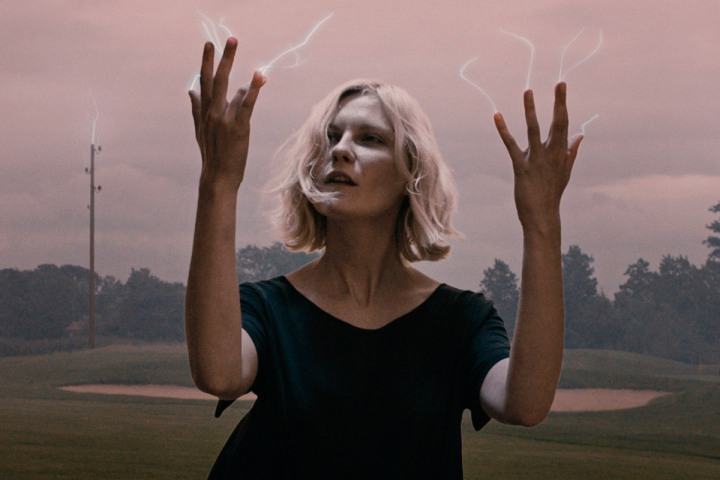
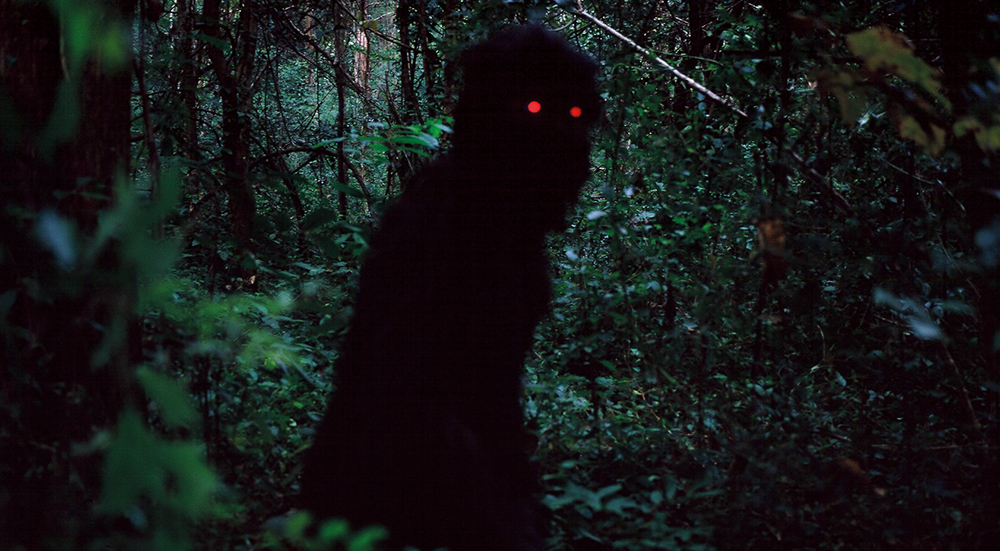





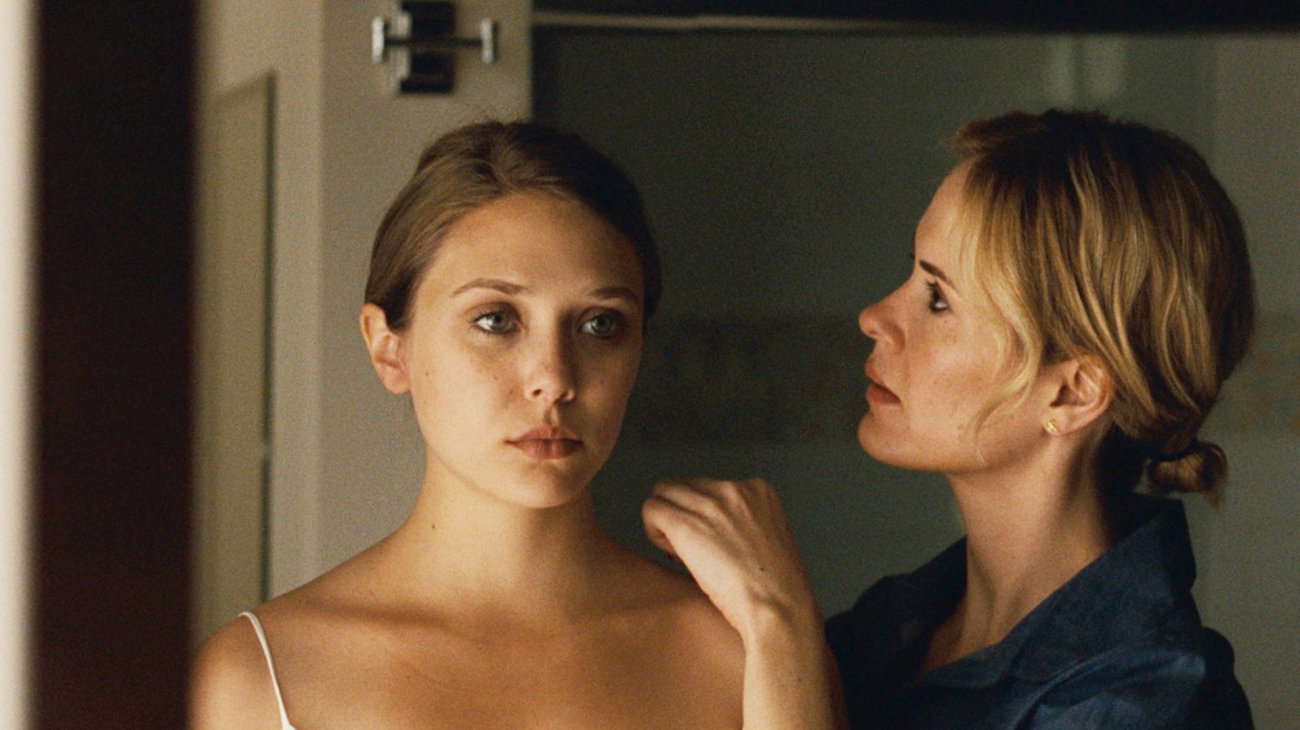

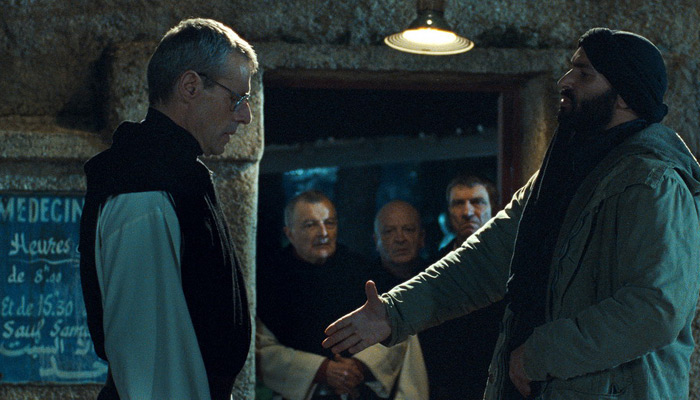


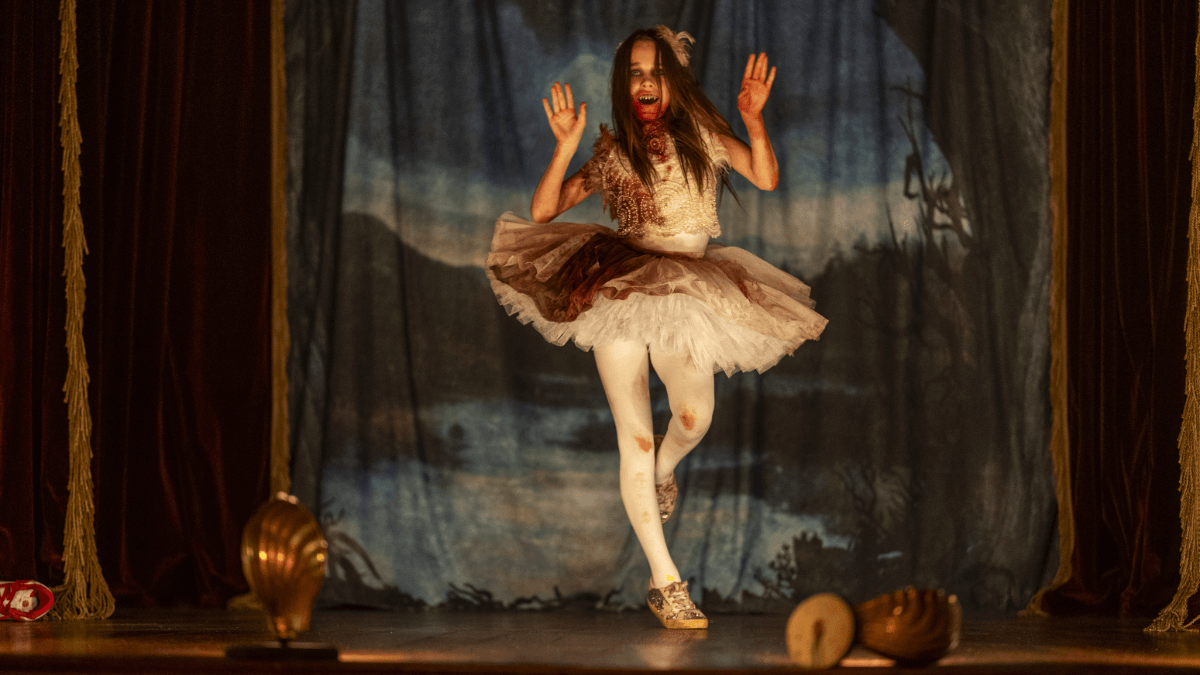




Mine would be
1. The Artist
2. Drive
3. The Tree of Life
4. Hugo
5. Take Shelter
6. Melancholia
7. Warrior
8. Shame
9. Tinker, Tailor, Soldier, Spy
10. Submarine
Great list. I’d put A Separation at 1 and bump Shame down a bit, but that’s just nit picking.
I haven’t seen Le Quattre Volte and Tinker Tailor. Gotta check those out.
I’d add in Contagion, Dangerous Method, Hugo, Rise of The Planet of the Apes & Capt. America : The First Avenger, essential entries for my best of 2011 list.
Wow, it’s terrible that I have not seen any of these movies. I would love to watch
Poetry
Le Quattro Volte
Separation
Second the emotion on Tinker Tailor Soldier Spy, Mysteries of Lisbon; to a lesser extent on Poetry (there’s Lee Chang-dong I like more than Poetry and much more than Burning) and Warrior.
This would be my list
1 A Separation
2. Drive
3. Hugo
4. The Artist
5. Beginners
6. The Descendants
7. Melancholia
8. Margaret
9. The Ides of March
10. The Tree of Life
Lame year
Still need to see A Separation, Uncle Bonmee and Margaret. I have no excuse, I know. My top ten of 2011:Tomboy, Kill List, Weekend, Martha Marcy May Marlene, Poetry, My Joy, , Snowtown, Tyrannosaur, Of Gods and Men, Melancholia. Moneyball, Drive, Cold Fish, The Guard, Turn Me On Dammit and Shame are all bubbling under. I need to revisit A Dangerous Method; it left me cold the first time, but Cronenberg always deserves a second chance. Wish I could see Hugo in 3-D, but an eye operation left my depth perception a bit dodgy, so no 3-D for me.
Of these films, Melancholia tops my list. I first viewed at home as getting to the theater isn’t an easy task for me. The cinematography of the opening sequence left my mouth agape. My excitement almost took me out of the film for the first few minutes after. After finishing the film I went back and rewatched those slow moving images another two times. There was something majestic and hauntingly beautiful about them. They foreshadowed the slow crawl toward inevitable destruction.
Next up would be Drive. After viewing Bronson, Valhalla Rising, I was excited for Drive. There’s something quite powerful about the silences in Refn’s films, especially these three. He’s not afraid to let a scene sit with these silences as they are and not filling them with unnecessary dialog to make the film feel “full”.
Tinker, Tailor, Soldier, Spy, The Descendants, A Separation, Bellflower, Another Earth, and Moneyball were all very enjoyable and excellent films, but none of them affected me the way Melancholia and Drive did.
We’ve talked about A Tree of Life before. I really wanted to like it, but it just left me feeling flat by the end of it. I was disappointed by that reaction because I really like Malick’s work. A Thin Red Line being my favorite of his later career. I should give TOL another watch to see if I have a different reaction. It has been 10 years.
Superb list, outstanding year for cinema! Margaret might place #1 for me that year. Thank you for posting!
Nicely done, though plenty of disagreements from me as in particular I’m a Tree of Life dissenter. My list for that year, from #1-10: A Separation, The Descendants, The Girl with the Dragon Tattoo, Pariah, Cave of Forgotten Dreams, Take Shelter, The Artist, Drive, War Horse, Meek’s Cutoff. Not a Von Trier fan at all, but Melancholia was on the original version of my list 10 years ago. I saw it opening night at its only location in Los Angeles, thought it was wild and brilliant and have been meaning to revisit it for going on a decade now.
For me it wasn’t 2011 wasn’t a stellar year, but I enjoyed the risks some films took.
First was the Artist. To sit back and watch a new
silent film in 2011 was a treat. Let’s face it, releasing it was a huge gamble. It was going to be good or be an epic bomb.
Also Clooney going against type in the Descendants was a good shake up.
I was surprised that I enjoyed Moneyball. Usually Pitt and Hill just play Pitt and Hill, but somehow this film worked.
The rest of your picks I agree with but not necessarily the ranking. But close enough.
Shame and Tree of Life were def two of this year’s masterpiece films. Thank you, Robert, for another great reflective of films.
I forgot to add Hugo, Ides of March and Midnight in Paris.
This a great list!! 2011 really did have some great films in cinema!
I need to re-watch Tree of Life soon. I think I was too young to understand it at the time. There’s a lot of gold on here, I can’t wait to add some of these to my watch-list
1. Melancholia
2. Take Shelter
3. Drive
4. Hugo
5. The Tree of Life
6. Shame
7. The Descendants
8. Another Earth
9. Martha Marcy May Marlene
10. Alps
Did you know these truths on CBD OIL and Full Spectrum CBD Hemp Oil? Cannabinoids are separated from hemp utilizing supercritical CO2 extraction. Thanks to modern-day innovation, the resulting service is tidy, without unnecessary waxes and heavy metals, naturally present in the plant, and the drawn liquid has a typical, oily consistency. CBD oil contains cannabidiol as a base ingredient and may consist of only trace quantities of tetrahydroxycannabidiol (THC). Works as a memory enhancer, improving concentration and coordination of motions, getting rid of swelling and recurrent infections. It enhances the conduction of stimuli in the course of autoimmune illness (several sclerosis, amyotrophic sclerosis). It is advised by medical professionals and pharmacists as an antioxidant and compound that blocks the action of proinflammatory cytokines (proteins), e.g. in Crohn’s illness or ulcerative intestinal tract. RSO oil has a low CBD content, while high THC. The synergistic (enhancing) action of CBD and THC relative to each other is utilized here. Both cannabinoids can do much more together than when used separately. Both marijuana oil type CBD and RSO also contain other cannabinoids, such as cannabichromene (CBC) and cannabigerol (CBG). The secret is not, nevertheless, that CBD frequently has actually a structure broadened to include flavones, flavonoids, terpenes, terpenoids, amino acids and omega acids. The distinction is primarily due to intentions guiding humankind to use one or the other product. CBD medical marijuana oil is a rather advantageous mix of cannabinoids, developed to protect versus 21st century disease. It’s best to utilize all of these compounds together, as nature developed them and confined in cannabis inflorescences. It turns out that cannabidiol improves the effects of cannabichromene (CBC) and cannabigerol (CBG), and flavonoids or flavones enhance the absorption of these compounds. Omega-6 and omega-3 highly nurture the body and do not allow to change, which accelerate the aging procedure of the organism and improve the advancement of cancer. Oil of marijuana in a type of hobby APR contains little quantities of CBD, stabilized by the existence of THC. Producers focus on the synergistic impact of one compound relative to the other, while abandoning the existence of CBC and CBG. Why such a choice? – Modern scientific research study shows that CBD + THC manage severe autoimmune illness, while CBC or CBG show very little activity in the existence of both compounds, similar to flavonoids, terpenes or flavones, therefore their content in the solution appears to be unnecessary. In addition, the cannabis stress from which THC and CBD are derived include minimal quantities of other cannabinoids. RSO oil is completely illegal in Poland, which is why it can not be gotten in any legally operating store on the marketplace. Naturally, there are a number of amateur approaches for obtaining it, however it’s great to know that substances obtained synthetically in house labs are uncertain, untested, and the effect unknown. The solvent for the production of home RSO is typically fuel, alcohol and even kerosene, which instead of treating, toxin. Alcohols and their like impair cannabinoids, and so in truth, they do not bring anything new to the medical world. Cannabis oil has currently marked a new period in which guy stopped to fear what is unknown, and began to find what our forefathers had actually currently observed and use the substantial capacity, initially glance, a little bizarre relationships, associated primarily with pathology. Medical marijuana, contrary to its name, does not mean fermented female inflorescences and leaves consisting of psychoactive compounds coiled in so-called «Joints», but a helpful oil without psychoactive THC. A basic person, after taking dosages of medicinal marijuana and accomplishing the proper state of cannabinoids in the blood, can delight in increased resistance, minimized susceptibility to cancer, delayed aging and decreased danger of stroke or cardiovascular disease. CBD oil consists of cannabidiol as a base active ingredient and may contain only trace quantities of tetrahydroxycannabidiol (THC). RSO oil has a low CBD material, while high THC. Both cannabis oil type CBD and RSO also contain other cannabinoids, such as cannabichromene (CBC) and cannabigerol (CBG). CBD medical cannabis oil is a rather beneficial mix of cannabinoids, developed to safeguard against 21st century illness. Oil of marijuana in a kind of hobby APR consists of little amounts of CBD, stabilized by the existence of THC.
I’m not that much of a internet reader to be honest but your blogs really nice, keep it up! I’ll go ahead and bookmark your site to come back down the road. All the best
Hi, i feel that i noticed you visited my blog so i came to “return the choose”.I am trying to in finding issues to improve my website!I guess its good enough to make use of a few of your concepts!!
Excellent goods from you, man. I have understand your stuff previous to and you’re just too wonderful. I really like what you’ve acquired here, really like what you are saying and the way in which you say it. You make it entertaining and you still take care of to keep it smart. I can not wait to read far more from you. This is actually a great site.
An impressive share, I just given this onto a colleague who was doing just a little analysis on this. And he in actual fact bought me breakfast as a result of I found it for him.. smile. So let me reword that: Thnx for the treat! But yeah Thnkx for spending the time to discuss this, I feel strongly about it and love studying extra on this topic. If possible, as you change into experience, would you thoughts updating your blog with more details? It’s highly helpful for me. Large thumb up for this blog submit!
certainly like your web-site but you have to check the spelling on quite a few of your posts. A number of them are rife with spelling issues and I find it very bothersome to tell the truth nevertheless I’ll surely come back again.
What’s Happening i’m new to this, I stumbled upon this I’ve found It absolutely helpful and it has helped me out loads. I hope to contribute & assist other users like its aided me. Great job.
I’m impressed, I need to say. Really rarely do I encounter a weblog that’s both educative and entertaining, and let me tell you, you could have hit the nail on the head. Your idea is excellent; the problem is something that not enough individuals are speaking intelligently about. I am very joyful that I stumbled across this in my seek for one thing relating to this.
It’s really a cool and useful piece of information. I am glad that you shared this useful info with us. Please keep us up to date like this. Thanks for sharing.
Wow! This can be one particular of the most helpful blogs We have ever arrive across on this subject. Actually Wonderful. I’m also an expert in this topic so I can understand your hard work.
It’s a pity you don’t have a donate button! I’d definitely donate to this excellent blog! I guess for now i’ll settle for bookmarking and adding your RSS feed to my Google account. I look forward to brand new updates and will talk about this site with my Facebook group. Talk soon!
My brother recommended I might like this website. He was entirely right. This post truly made my day. You cann’t imagine simply how much time I had spent for this info! Thanks!
What’s Happening i’m new to this, I stumbled upon this I’ve found It positively useful and it has helped me out loads. I’m hoping to contribute & help other users like its helped me. Great job.
It’s really a great and useful piece of information. I am glad that you shared this helpful information with us. Please keep us up to date like this. Thanks for sharing.
Appreciating the time and energy you put into your blog and detailed information you provide. It’s good to come across a blog every once in a while that isn’t the same outdated rehashed information. Excellent read! I’ve bookmarked your site and I’m adding your RSS feeds to my Google account.
Good day! Would you mind if I share your blog with my zynga group? There’s a lot of people that I think would really appreciate your content. Please let me know. Thank you
Wow, wonderful blog layout! How long have you been running a blog for? you make blogging look easy. The overall glance of your website is great, let alone the content!
very good jon mate. it helped me a lot mersii
very good jon admin. it helped me a lot thx
very good jon admin. very useful mersii
very good jon bro. very useful cute
very good jon admin. very useful thx
very good jon admin. very useful thx
Hiya! I just want to give an enormous thumbs up for the great information you’ve got here on this post. I can be coming again to your blog for extra soon.
Would you be fascinated by exchanging hyperlinks?
Great web site. A lot of useful information here. I am sending it to some friends ans also sharing in delicious. And obviously, thanks for your effort!